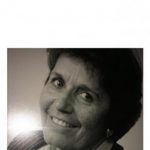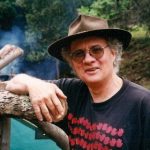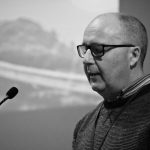Fast Times: An Interview with Criminal Psychologist Tim Watson-Munro

The tragedy of the Hoddle Street Massacre, the murder charges against the ‘Black Prince of Lygon Street’ Alphonse Gangitano, and the fall of Perth multimillionaire Alan Bond: these were high-profile cases that gripped the nation in the twilight years of the twentieth century.
And for all these cases, it was leading forensic psychologist Tim Watson-Munro who was called in to assess the defendants.
But these were heavy times. Whilst Watson-Munro’s career was blossoming, he was also living the high life, running with a group of successful lawyers, doctors and QCs. And as the money rolled in, the cocaine use followed, and the psychologist soon formed an expensive habit.
These stories and many more are revealed in “Doc”, Tim Watson-Munro’s recently released memoir, Dancing with Demons: True Life Misadventures of a Criminal Psychologist.
The book is currently sailing the bestseller lists on both Amazon and Booktopia.
The criminal mind
“Forensic psychology is not for the fainthearted,” Watson-Munro wrote back in 2013. “Both in terms of the content of the work and the extraordinary pressures which can be brought to bear as an expert witness under cross-examination.”
Over the last 40 years, the criminal psychologist has assessed over 30,000 people, and “he’s given evidence in the dock” at least 3,000 times.
But it wasn’t all life in the fast lane.
After completing a Masters in Psychology at Sydney University, Mr Watson-Munro landed a job as a forensic psychologist at Parramatta gaol in 1978. He was only 25 years old, when he walked through the gates of one the state’s most notorious correctional facilities.
However, while he was there, Watson-Munro implemented reform and rehabilitation programs that gained him national attention. And it wasn’t soon after that one of Melbourne’s top forensic psychiatrists made him an offer that he couldn’t refuse.
The fall of Icarus
Julian Knight opened fire into oncoming traffic on Hoddle Street in Clifton Hill on August 8 1987. The former Duntroon cadet killed seven people and seriously injured 19 more. At the time, Australia was a country unaccustomed to such large scale tragedies.
As the nation mourned, Watson-Munro was called in to assess the mind of the killer.
It was this case that shot the psychologist into the spotlight. From there he came to work with the likes of Alan Bond and the Carlton Crew. And it was during this time, when he was working on some of the nation’s most high-profile cases that he had his first taste of “Colombia’s finest.”
Sydney Criminal Lawyers® spoke to Mr Watson-Munro about his illustrious career as one of the nation’s leading forensic psychologists, life inside the walls of Parramatta prison, and what is was like to fly too close to the sun.
Firstly, in 1978, you landed a job as a forensic psychologist at Parramatta gaol straight after university. What was it like starting out at such a notorious correctional facility?
It was mind-blowing for me. I’d grown up with a privileged sort of background. My father was an academic. I’d lived overseas. I’d been educated at a good school.
So to go from that sort of bourgeois existence into arguably the toughest gaol in Australia at the age of 25, it was really quite an experience for me. It was like landing on Mars. I can still remember it.
I can remember that first day walking through the big iron gate. And crooks in green suits whistling at me. “Come to my cell, baby. I’ll see you tonight.” I was 25. I looked about 18. And I weighed about 20 kilos lighter than I do now.
I met the gaol governor. A bloke called Harry Duff. And I remember what he said to me in his old office. He said, “Remember this son. If you can be conned, you can be fucked. I hope you enjoy your time working here.” And it kind of went from there.
I adjusted very quickly. I wasn’t a nerd. I rode motorbikes and played in rock bands. But, working in a maximum security gaol – the histories of the guys – it was really quite exhilarating in many ways.
During your time at the prison, you ran reform programs. What did they entail? And what were the outcomes like?
I became involved in what was known as the Day in Gaol Scheme, where young juvenile offenders were sent to Parramatta Gaol for a day. It was a crime deterrence scheme based on experiential learning. They would see what their lives were headed towards for a day.
It was very successful. I trained a number prisoners in counselling. And that really launched me onto another level in terms of my profile. But, I was involved in other things too. I set up the first drug rehabilitation program in any gaol in Australia.
Again, I engaged the talent in the gaol. There’s a lot of very clever people in prison. It’s just that their abilities have been misdirected during life. So they welcomed the opportunity to have something sensible and meaningful to do to serve out their time.
In the early 80s, you started a high-profile career as a criminal psychologist in Melbourne.
How did you come from working in a western Sydney correctional facility to pursuing a successful career in the fast lane down south?
The Day in Gaol Scheme was very high-profile, because it was new and successful.
I went on the Mike Walsh Show with two recidivist prisoners. They’d never been out of gaol. But they were allowed to go down and talk on this show. It was like the Midday Show. It was a high rating program.
Out of that, I was invited to speak at a conference in Melbourne on the Day in Gaol program. I’d previously met a very high-profile forensic psychiatrist. A guy by the name of David Sime. He was a Welshman. And after I gave this talk, he said, “You can come and work with me in Melbourne.”
I said, “Well, you know mate, I live in Balmain. I live between two pubs. I’ve got a good job.” But the opportunity was too good to knock back really. He was considered one of the best in Melbourne.
So I moved to Melbourne in October ‘81. Through working with him, I was introduced to some of the top judges and QCs in Melbourne. And it just went from there.
You worked on the Hoddle Street Massacre case. What was it like to be referred this case? And what would you say drove Julian Knight to carry out such a random, senseless act?
I was very flattered to be briefed on that case. I was about 34 years of age. It was the biggest case in the country. And I wondered whether I was a bit out of my depth.
But once I met him, he was a 19 year old kid. He was very cooperative. In fact, he still maintains contact with me 30 years on.
During my career, it was like each case became a stepping stone. There were bigger profiles and bigger cases. And the Knight case – or the Hoddle Street Massacre, as it is described – really launched me into the stratosphere.
It was a fascinating case to do. He was driven by frustration and anger, and bastardisation at Duntroon. And feeling a failure. He’d always wanted to be an officer and a gentlemen. But because of what he went through at Duntroon, it all went very pear-shaped quite quickly for him.
You were also called into assess Melbourne gangster Alphonse Gangitano. He’d been charged with the murder of Greg Workman. Many people these days, know him as the somewhat glamorous Underbelly character.
What was it like working with this infamous member of the Carlton Crew?
I found him very easy to work with. He was a highly intelligent bloke. He certainly had a fearsome reputation – well-deserved. There was another side to him. He liked his literature.
I was sent to him initially for a bail application for murder. The two key witnesses for the Crown decided to go overseas. You can read whatever you like into that. Once they went, there was no case. And I thought, I won’t be needed anymore.
But, he wanted to continue seeing me. And he did for a number of years.
I’d lost contact with him prior to him being murdered. But I had other members of the Carlton Crew as clients as well. Of the twenty-something people who were murdered in the so-called underworld war, 17 of them, at some point, had been a client of mine.
So you knew a lot of people who got knocked off.
Yeah. In fact, I said to a guy one day, “Whoever’s doing this, tell him to stop it, because he’s killing my cash flow.”
You’ve had to assess a lot of extreme characters who’ve been up for a variety of offences.
Have you ever found yourself in situations where you felt uneasy? And how did you deal with that if so?
I’ve never felt threatened at all. And I’ve been with some very serious hard-hitting crooks.
The only time I felt threatened, in fact, was when I was working at Parramatta Gaol. He was a glue-sniffer and brain damaged. He came into my office and leapt onto my desk like a frog. And pulled out some sort of knife, and he said he was going to kill me. He was completely psychotic.
I just called it. I said, “Well, have a go. But, I think you should just sit down and stop the bullshit.” And he did.
Forty years on, would I play it that way? Not at all. It was slightly humorous in the end.
That was a fairly intimidating moment, or two. But he handed over the knife, and he was okay.
In terms of the other people I’ve seen – my mantra has always been, “Treat people the way you would expect to be treated” – I don’t judge them. I threat them with respect, and I get it in return.
When you work on these cases, you’ve been called in by a defendant’s lawyers to conduct a psychological assessment of them. It’s in their favour if the assessment turns out in a certain way, and they’re paying your bill.
How difficult is it to go in, make your assessment, and then have to deliver an evaluation that doesn’t suite the legal team that’s called you in?
Look, it’s not difficult. I’ve always attempted to be as objective as possible. And there are quite a number of my reports that simply don’t see the light of day for that reason.
But, you don’t thrive in this profession – in this speciality – if you’re subjective. People quickly learn that you’re an unreliable witness. The bench doesn’t like you. And you have to maintain your position of objectivity as a witness to the court. Not to the defence. Not to the Crown.
You’ve recently published your memoir, Dancing with Demons: True Life Misadventures of a Criminal Psychologist, which is doing very well by all accounts. It touches on the part of your life when you were using cocaine in the late 90s. You developed a $2,000 a week habit.
What was it about cocaine that drew you in? And how did you go from using the drug once or twice to developing a dependency?
I got carried away with my own ego and bullshit. I was kicking around with some high-profile lawyers. We used to go to lunch once a month. At one of these lunches, someone produced some coke, and I tried it.
By then, I was working 80 to 100 hours a week. I was exhausted. It kind of lifted my mood, and energy levels. I kept it under control for quite a while.
It went from that to the habit you described, when my first wife Susan was diagnosed with terminal bowel cancer. She was 40. We had two kids, who were in adolescence. I had remarried, and had two other children. And it was the final straw for me.
Instead of recognising I had a problem, and perhaps being more open about what was going on in my life, I just started using more coke. It is a very dangerous and seductive drug. It blocked out all the emotional pain. And it gave you energy.
But ultimately, as the record reflects, I became a very public train wreck.
As you’ve mentioned, things spiralled out of control. And you actually ended up surrendering yourself to the police in September 1999.
What led you to take that step? And from there, what happened to your life?
I’m not as noble as that. But I did contact the police. There was a lawyer, Andrew Fraser, who was busted. I worked with him on a number of cases, including the Alan Bond case. He was charged with conspiracy to import cocaine.
I knew nothing about it. But I knew that he would have been under surveillance for a while. It would have been abundantly clear that I was getting cocaine from him.
He was arrested. I was at a leading QCs birthday party on a Sunday afternoon. And word came through that he had spent twelve hours with the cops singing like a canary, as they say.
My second wife was eight and half months pregnant. We’d lost a child a couple of years beforehand. My first wife had died from cancer, by that stage, three weeks beforehand. So I didn’t want the police raiding my home at three in the morning, and traumatising my family.
I went to see a lawyer, probably Melbourne’s top criminal lawyer at the time. A guy by the name of Brian Rolfe. I said, “Make an appointment. I will go down and talk with them. Anything that Fraser has said I will concede to. But I don’t want them bursting through my house. There’s no need to do it.”
They didn’t arrest me. I was charged by way of summons. And I went to the Melbourne Local Court in December ‘99.
I received a non-conviction good behaviour bond. I had QCs giving evidence on my character. The magistrate said my integrity was beyond reproach. And he didn’t want to interfere with a very significant career.
I thought that would be the end of it. But the Victorian Psychologist Registration Board – as it was then – had different ideas. They had an inquiry into my drug use, and I was then deregistered for a bit over three years. I was deregistered in June 2000.
We had a final hearing on the matter in November ‘03, where they said I could go back to work. And I recommenced work in February 2004.
So thirteen and a half years on, I haven’t looked back. And my career has blossomed again. I’m getting a lot of big cases. I’m working in Sydney and Melbourne – primarily Sydney.
The years in the wilderness were terribly difficult to negotiate. I’d been terribly busy. I had a great reputation. I really went from rooster to feather duster almost overnight.
And lastly, Tim, things have changed for you. You’re now back working as a forensic psychologist.
What would you say you’ve learnt from all of this?
Many things. I’m far more humble. I’m much more attuned to work-life balance. I have greater insight.
Sadly, 90 percent of the people I see, I reckon have some sort of drug problem. And it’s mainly ice and cocaine. It’s not confined to older guys or younger guys. It’s across the spectrum of society. I see unemployed people. And I see lawyers, doctors and company executives.
I bring a fairly unique insight to that problem, and more effectively, I think, how you can deal with it. If you can get out of the hole I dug myself into, I think anyone can do it with perseverance.
I think too, you need to be more open about problems you have. There needs to be more of a conversation about depression, overwork and drug use.
I don’t think we’re getting it right at the moment, because the war on drugs is a failure. Just look at the statistics. You can learn a lot from the models in the Netherlands and Portugal. They’ve adopted a different approach to drug use and they’re now emptying gaols.
They’re closing gaols down. People are getting treatment, and they’re becoming productive members of the community.
It was a horrible time for me. Life is what it is. And I guess, looking back in other ways, it’s been a huge learning experience for me that has probably made me a more humble and better practitioner of what I do.
Tim thanks very much for taking the time out to give us some insight into your intriguing career.
No problem.







